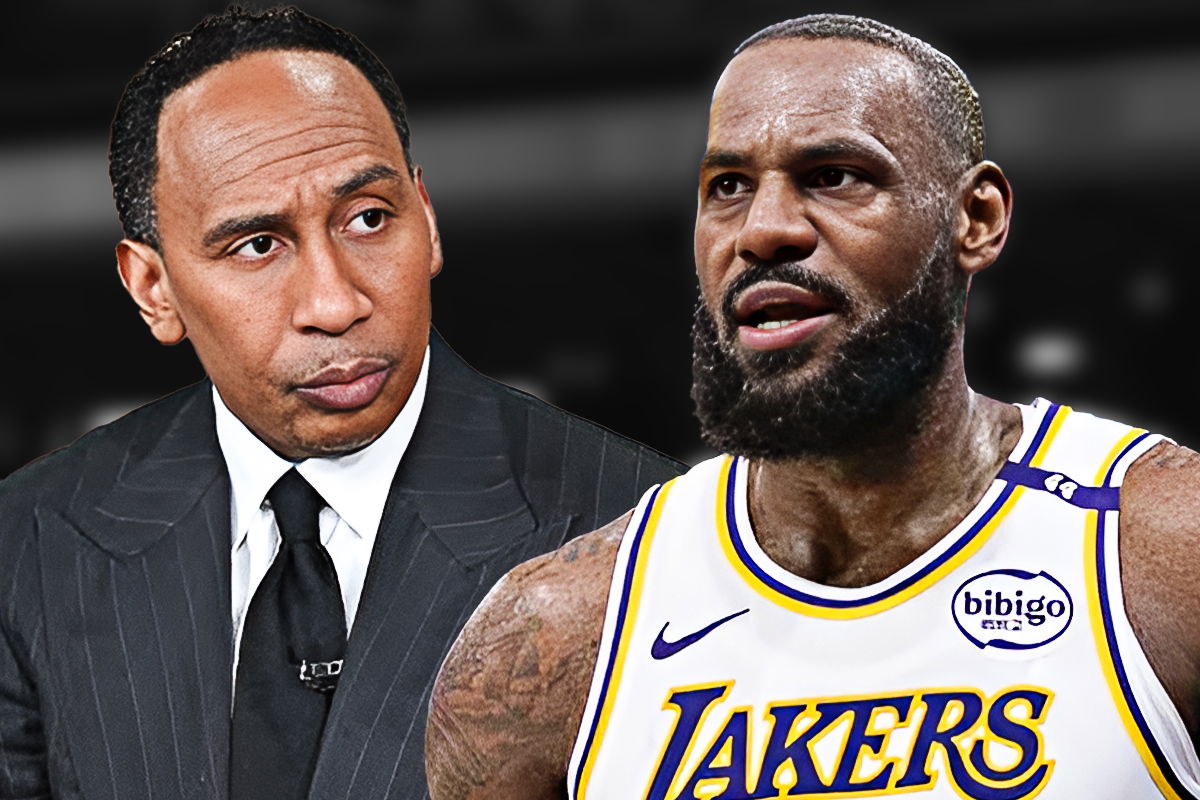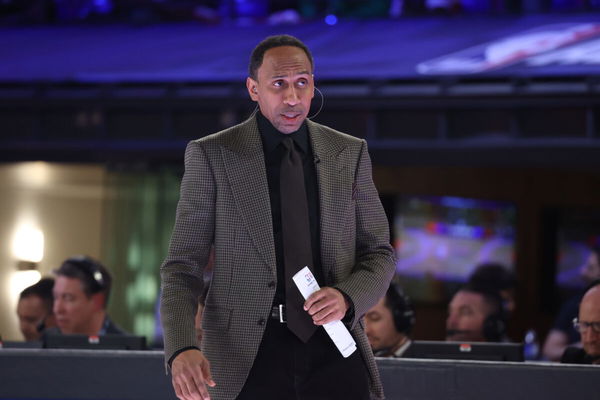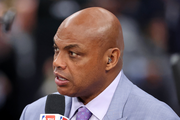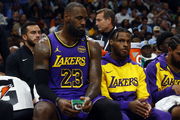

“I don’t like his a–. Not one bit.” is the least refined and polished line that Stephen A. Smith has ever uttered: hurt, furious, and publicly challenging LeBron James to an open tussle.
Watch What’s Trending Now!
What began as a confrontation at court over Bronny, has now become something far more: an opening of the season feud that is now about supposed career sabotage, media publicity games, and who holds the power to write the story. But why did Stephen A. Smith get this far after 10+ years of strained relationships with LeBron James?
The catalyst was the fight at Crypto.Com arena following an early-2025 Lakers game, a fight that was connected to a January plea by Stephen A. Smith on ESPN that Bronny is being exposed in the NBA. The ensuing exchange went viral, with each party immediately opting for their media, with Stephen A. Smith opting to lean into both explanation and escalation on podcast and non-ESPN media and LeBron James opting to clarify his position on other programs. The fact that it happened the same time Stephen A. Smith had his contract renewal in the news, is something that SAS claims was rather fishy, and that propelled the entire thing into the personal kerfuffle to media event.
ADVERTISEMENT

USA Today via Reuters
Feb 16, 2024; Indianapolis, IN, USA; Team Stephen A coach Stephen A. Smith looks on against Team Shannon during the All Star Celebrity Game at Lucas Oil Stadium. Mandatory Credit: Trevor Ruszkowski-USA TODAY Sports
Underneath the viral clip is a decade of friction. Stephen A. Smith says this isn’t new: he told Carmelo, “I’m going to remember it because it hurt me, it had nothing to do with a lot of these people, and they didn’t take a moment to say, ‘Damn, Stephen A.’s been in this business for 30 years. That’s never happened. Why now?’” He frames the courtside moment as the latest move in a long game, a “set-up“. Stephen A. Smith accuses LeBron James of running public persona vs. private maneuvers: “I believe he’s one way publicly and another way privately.” That’s a heavy charge, it puts the feud into sabotage territory without naming details, and Stephen A. Smith refuses to elaborate beyond hinting that it’s serious.
Stephen A. Smith didn’t just air grievances, he issued a challenge. “Roll up on me publicly, because you did before. Don’t come private. Don’t come private,” he said, flatly demanding that if LeBron James wants to “hash it out,” do it where everyone can see it. That demand is tactical: if their conflict is truly about influence and access, public accountability strips away the back-channel erasure Stephen A. Smith warns about. He also edged away from naming specifics when pressed: “I’m not going there. Figure it out.” That evasiveness is intentional, protective strategically, but it keeps us fans leaning forward, wondering how deep the alleged meddling goes.
ADVERTISEMENT
Stephen A. Smith folds this into a bigger critique about modern athlete power structures, specifically Klutch Sports’ ecosystem and the ways superstar influence can bend media behavior. He’s argued for months that there’s pressure on journalists to sanitize criticism of certain athletes; he claims LeBron James’ network can and does push back. This feud, for Stephen A. Smith, isn’t just personal, it’s institutional: part PR machinery, part franchise sway, and part corporate calculus that puts networks in tough spots. That’s why SAS frames his fight as not only for himself but for journalistic independence.
ADVERTISEMENT
Race, selective engagement, and a volatile charge
Then Stephen A. Smith added another layer: race. On the Podcast he asked, “You ever see LeBron go at a white boy like he did with me ? Let’s call it what it is,” arguing that LeBron James picks his fights differently depending on who’s criticizing him. He pointed to Brian Windhorst as an exception, then immediately downplayed that exception, a rhetorical move that throws gasoline on an already fraught conversation about intra-community critique and who gets publicly confronted. Brought into the open, that accusation forces everyone to wrestle with uncomfortable questions about selective responses and reputation management.
When critics lob the “sellout” label at Stephen A. Smith for being part of the ESPN machine, he fires back: “Do you know my resume? Do you know how many Black people I’ve been helping?” He leans on his Philly-paper roots and long advocacy record, arguing that his platform amplifies causes and mentees. It’s a direct defense, not “I’m perfect,” but “I’ve used this megaphone for my community.” That pushback refocuses the debate: is Stephen A. Smith a ratings-first commentator, or a journo using celebrity to effect change? He insists it’s the latter, even as the hot-take model that built his fame fuels critics’ suspicion.
Top Stories
Charles Barkley Challenges ESPN To Fire Him After Harsh Criticism Of Co-Workers

Caitlin Clark’s Message to Steph Curry Contains a Subtle WNBA Plea, per Analyst

Paige Bueckers Finds Confidence in Unrivaled’s Financial Stance Amid Growing WNBA Uncertainty

Caitlin Clark Sends Message to Former Iowa Teammate During a Personal Moment

Bronny James All-Star Controversy Explodes After NBA Legends Accuse LeBron James


Imago
Apr 25, 2025; Minneapolis, Minnesota, USA; Los Angeles Lakers forward LeBron James (23) looks on against the Minnesota Timberwolves in the second half during game three of first round for the 2024 NBA Playoffs at Target Center. Mandatory Credit: Jesse Johnson-Imagn Images
In other words: the case study Smith vs. James tiff is a battle in the modern media warfare. It is editorial freedom vs. athlete-mogul politics. It is legacy networks that are attempting to retain access as talent creates parallel networks. And it is a street battle that plays both ends to the same ear in terms of attention, which is likely the reason why no one is ever packing it up. Since Stephen A. Smith himself posed the question: “Why now?“, that statement rings out of more than just personal injury; it is the question of who is last to tell stories raised to the entire business.
ADVERTISEMENT
The salvo of October by Stephen A. Smith, both personal anguish and call to action, leaves a choice, as LeBron James is either responding publicly, or this is another case of the big guns taking care of their own issues behind the scenes.SAS desires responsibility and he has challenged LBJ to the court. With the start of the season, this feud is more than drama, it is an experiment of whether celebrities can silence criticism, or whether an old-time pundit is capable of pushing back the debate and keeping the dialogue in the limelight. And do not forget that first line: I do not like his a–.It is unsophocles, it is mortal, and, in whatever case, it was human and made us watch.
If this goes on, someone should sell tickets, courtside drama has better pacing than most reality TV. But seriously, the implications here are real.
ADVERTISEMENT
ADVERTISEMENT
ADVERTISEMENT
ADVERTISEMENT